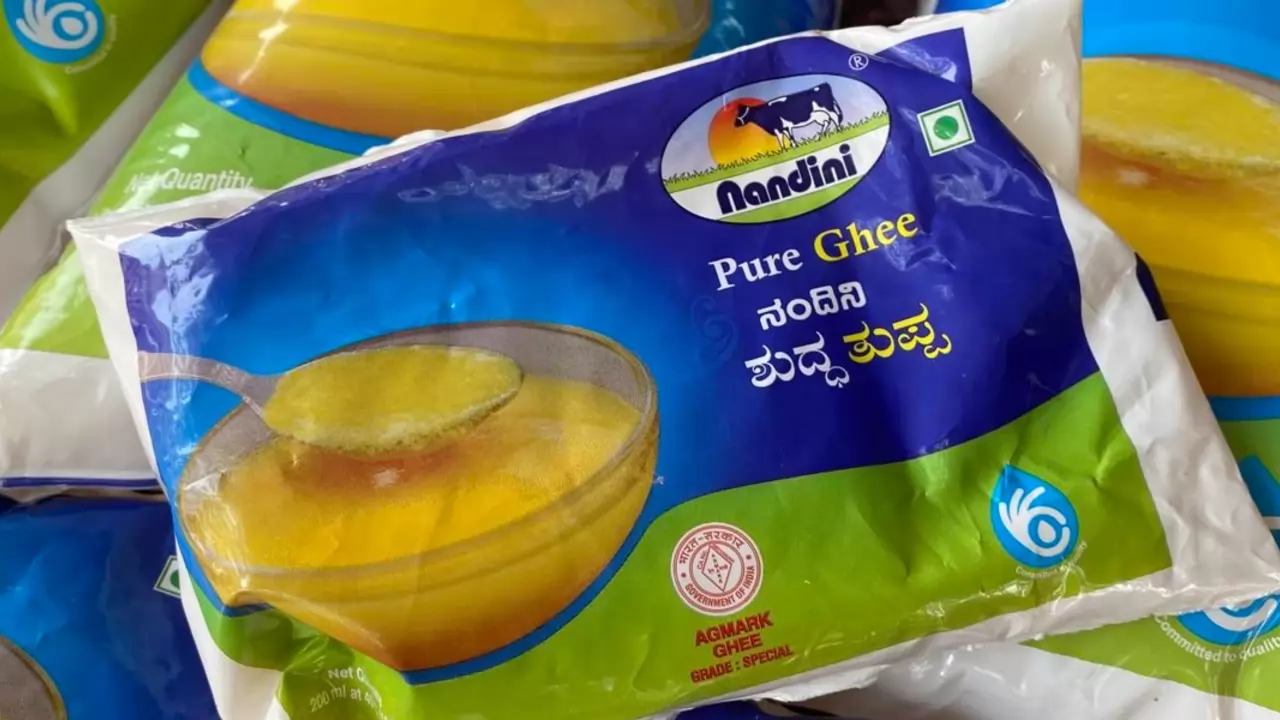
Nandini ghee (Mandya District Co-operative Milk Producers Society's Union Limited)
New Delhi: In the wake of the controversy surrounding the alleged use of animal fat in ghee at the Tirupati temple in Andhra Pradesh, the Karnataka government issued a directive on Friday, mandating that all 34,000 temples under its management must use Nandini brand ghee. The directive applies to all rituals, including lighting lamps, preparing 'prasada,' and serving food in 'Dasoha Bhavans,' where devotees receive offerings.
The Karnataka Milk Federation (KMF) produces Nandini ghee, and the government circular stressed the importance of maintaining the quality of prasada in temples. “In all the notified temples under the Religious Endowment Department of Karnataka State, it has been directed to use only Nandini Ghee for services, lamps, and preparation of all types of prasada and in Dasoha Bhavan. It has been suggested to maintain the quality in the prasada prepared in the temples,” the circular reads.
This directive follows the broader controversy that erupted over the alleged use of animal fat in the preparation of laddoos at Tirupati's famous Sri Venkateswara Swamy Temple, managed by the Tirumala Tirupati Devasthanams (TTD). Andhra Pradesh Chief Minister N Chandrababu Naidu raised concerns earlier this week, stating that samples of the ghee used at the temple had tested positive for lard and other animal fats.
The Tirupati temple produces approximately 3 lakh laddoos daily, requiring large quantities of ingredients, including 15,000 kg of ghee, reportedly sourced from Tamil Nadu's Dindigul district.
The row intensified as opposition leader Jagan Mohan Reddy came under scrutiny for allegedly allowing substandard ghee during his tenure as Chief Minister. Reddy vehemently denied these allegations, accusing the ruling Telugu Desam Party (TDP) of politicizing the issue. The controversy has now reached the Supreme Court, with concerns over religious rights under Article 25 of the Constitution.





Copyright © 2025 Top Indian News
